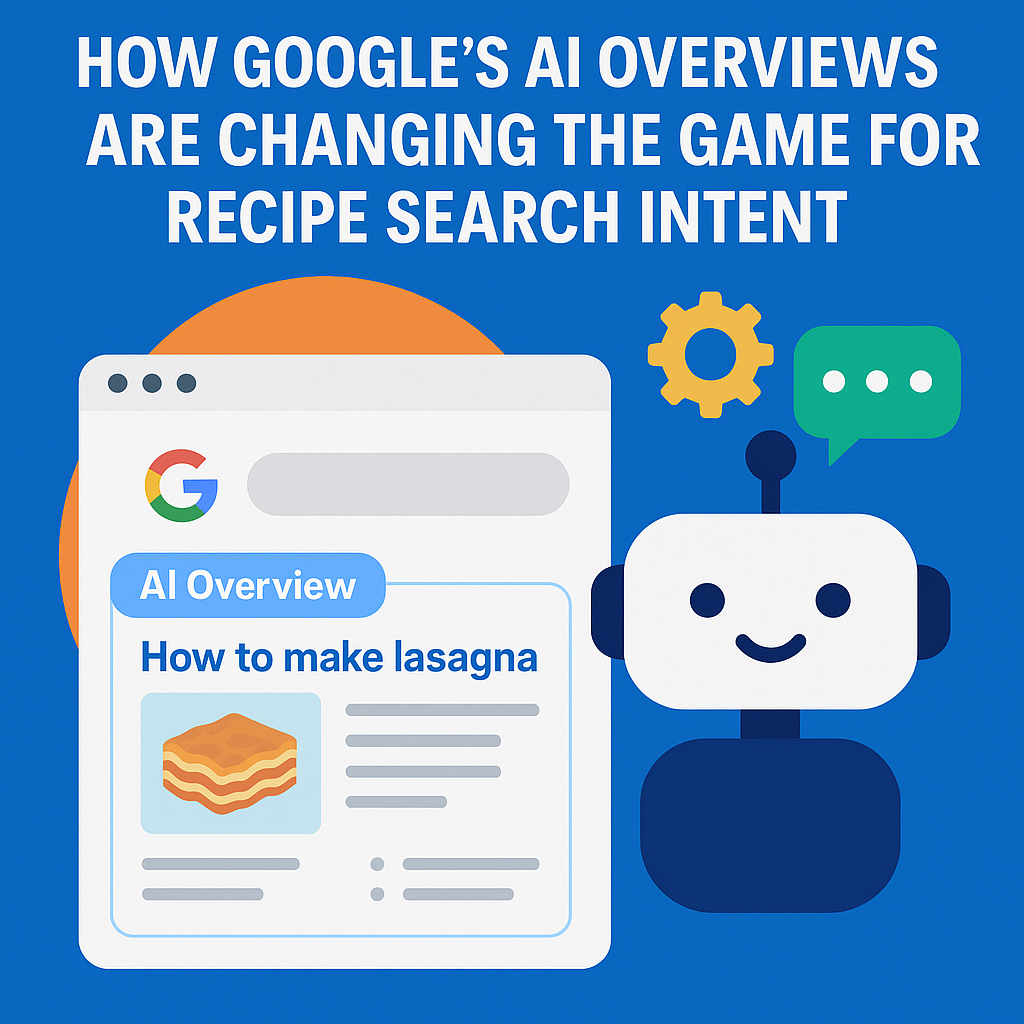How Google’s AI Overviews Are Changing the Game for Recipe Search Intent
Google’s AI Overview is redefined how the search results are distributed – and it is beginning to influence food bloggers, publishers and recipe sites in ways that we do not guess. What is interesting (and worrying for something) is that the AI overview is now being triggered for recipe-Intent Query-even when the word “recipe” is not used in search clearly.
This subtle change in behavior marks an important update of how Google explains the intention, and if you are in the material or SEO world, it is something that you need to pay attention to.
What’s Happening With Recipe Queries and AI Overviews?
Until recently, most recipe-related search results featured standard blue links, featured snippets, or rich cards. But now, Google’s AI Overviews (previously known as Search Generative Experience or SGE) are appearing even when users search for phrases like:
- “How to make lasagna”
- “Easy chicken dinner ideas”
- “Best ways to cook salmon”
Pay attention to the absence of the word “recipe”? Nevertheless, Google interprets them as recipe-intent query and often presents AI-generated answers-summarizing steps, materials, and methods briefly-without sending users to real publisher websites.
Why This Matters for Food Bloggers and SEO Experts
This update may look small on the surface, but it has major implications:
- Reduced Clicks for Traditional Recipe Websites
If a user gets a complete answer directly from Google’s AI Overview, they might not click through to the source websites. This could lead to declining organic traffic for sites that rely on recipe content.
- AI Using Your Content Without Proper Credit
Many AI answers are generated from content scraped from websites — possibly even your blog. But the link attribution is minimal or buried, and users may never visit your site at all.
- Keyword Strategy Needs Rethinking
With AI Overviews now appearing for implied recipe intent, content creators may need to optimize differently, not just for exact-match keywords like “chocolate cake recipe” but also for related, natural queries like “how to bake a moist chocolate cake.”
How to Adapt Your SEO Strategy for AI-Driven Recipe Searches
To stay ahead of the curve, here are a few smart moves food bloggers and SEO professionals should consider:
✅ Focus on Experience-Rich Content
Google continues to emphasize first-hand expertise and user experience. Include step-by-step photos, personal cooking tips, and variations to give readers (and Google) more reason to value your page.
✅ Use Structured Data (Schema Markup)
Ensure your recipe pages use Recipe Schema markup. It helps Google understand your content better and could increase the chances of being featured in recipe carousels or even cited in AI summaries.
✅ Optimize for Conversational Keywords
Include both specific and natural-language queries in your H2s and body text. For example:
- “How to cook biryani like a pro”
- “Easy ways to make pasta creamy without cream”
These types of queries are now prime targets for AI Overviews.
✅ Encourage On-Page Engagement
Use calls-to-action, video tutorials, internal links, and helpful tips to keep users on your page longer. Google tracks engagement metrics, and high dwell time may improve your visibility even in AI environments.
Is There Any Silver Lining?
Yes — for now, AI Overviews still often include links to source websites (albeit in a low-visibility format). And if your content is topical, trustworthy, and helpful, it still has a chance of being cited or linked by the AI.
Also, Google has emphasized that they’re still testing and evolving the AI Overview experience. Feedback from content creators and SEOs could influence how it develops over time.
Final Thoughts: Time to Evolve With Google’s AI-First Search
Google’s AI Overviews are making search more dynamic — but also more competitive. As recipe-intent queries become more nuanced, food bloggers and publishers will need to adapt their keyword strategies, content structure, and on-page SEO.
Understanding that even a simple phrase like “how to make pancakes” can now be intercepted by AI means we must think beyond keywords and lean into content experience and unique value.
If you’re serious about keeping your recipe blog relevant in 2025 and beyond, it’s time to start optimizing for intent, not just terms.
Want to stay ahead in the AI search era?
At FosterIdeaz Services, we help recipe sites and niche blogs evolve their SEO strategies for maximum visibility. Let’s build your AI-proof content strategy today.

